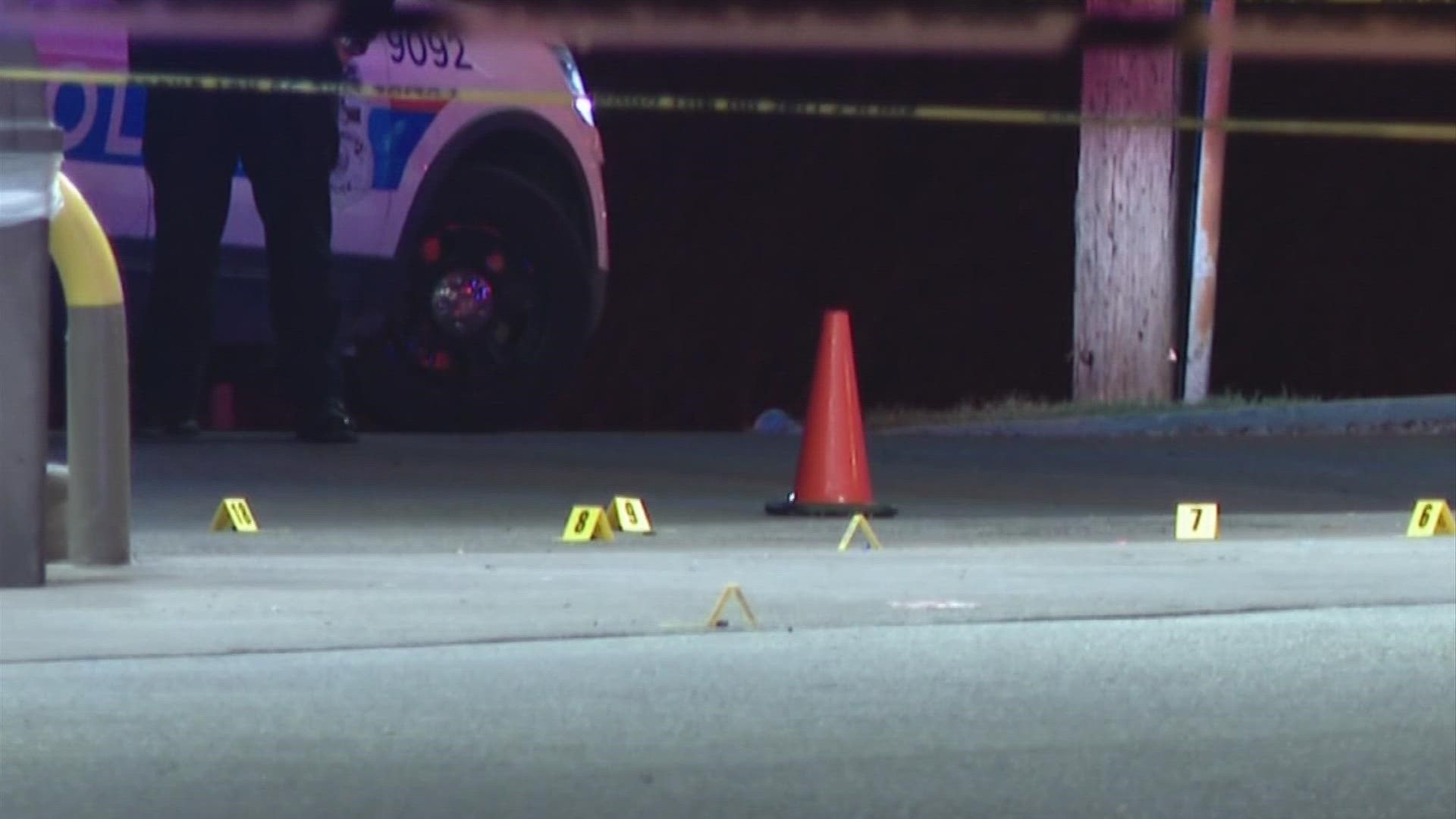COLUMBUS, Ohio — The single-year high for the number of homicides in Columbus continues to grow.
Columbus reached 200 homicides for the first time in the city's history.
Columbus isn't alone. Minneapolis, the city where protests sparked after George Floyd's death in 2020, is nearing a new record as well.
A theory called the "Minneapolis Effect" may explain the increase in deadly violence.
Each number is a person. A brother, a son, an aunt.
As we come to grips with the staggering numbers, and people lost, we must ask why.
Why are so many lives cut short because of homicidal violence, especially in the last year and a half?
“My son was shot 22 times,” said Jaqueline Casimire, with tears in her eyes.
Casimire belongs to a group no one wants to be a member of, “Mothers of Murdered Columbus Children,” she said. Her son Cornelius Casimire, or Ray Ray, was shot and killed in September 2020.
“My son was an avid gun collector. It was his birthday. He had all his guns in his possession because he and his friends went to the range. The neighbors said the guys walked out with duffel bags,” she described her son’s homicide.
Ray Ray was a face, not a number, in the record-setting year in 2020.
Jaqueline prays for the families who join her group.
“I wish it would stop,” she said.
For it to stop, we must understand why it's even happening.
Professor Paul Cassell teaches criminal law at the University of Utah.
He said there's a "Minneapolis Effect," that is impacting cities like Columbus across the country.
“After the anti-police protests began in Minneapolis in late May, early June 2020, I think police all across America began to pull back and weren't quite as aggressive in engaging in policing activities,” Cassell explained.
Cassell said a similar, but smaller, wave happened after protests broke out in Ferguson, Missouri when Michael Brown was shot and killed by a police officer in 2014.
“I think it's essentially a social issue for us across America. I think it's unsurprising to find that when police officers are being subjected to such heavy scrutiny for every individual action they take, perhaps they are going to be a bit more cautious, a bit more reluctant to engage in the type of aggressive policing that can effectively deter a homicide and shootings,” Cassell said.
As CrimeTracker 10’s Lacey Crisp reported in June, Columbus police saw an 80% drop in traffic stops in 2021 compared to 2019.
"You are going to get the division of police that you want. We need to be very open about what that means and what the potential positive and negative effects of that are," said Columbus Police Commander Tim Myers in June 2020.
Columbus City Council President Shannon Hardin says he doesn't necessarily believe in the "Minneapolis Effect," but is concerned about the levels of violence since May 2020.
After protests in George Floyd's honor took place in Columbus, Hardin pushed for a pause in police academy classes.
“We've had tough conversations about trust in law enforcement communities. I'm really proud of the work that has been done over the last two years to restore that trust,” Hardin said.
Instead, Hardin blames the impacts of COVID-19.
“The pandemic and its impact that it had on folks that were already teetering on the edge of mental health issues and vulnerability,” Hardin said.
Cassell disagrees.
“Some people have said, look, there's this pandemic going on and that's thrown everything out of whack, that's what is responsible for rising crime rate. The timing of that just doesn't fit. Covid started in March 2020, but there's a sharp increase in homicides about two and a half months later,” Cassell explained.
By taking a look at the ShotSpotter alerts, there has been a dramatic increase in shots fired from the summer before the protests, to the height of the uprising.
“It's a combination of things. There seem to be not a whole lot of consequences. My son’s murderer was charged with murder, and he had a $10,000 bail,” Casimire said.
Casimire said she agrees with the "Minneapolis Effect."
“I'm sure, if I was the police, if I heard for months and months that I'm no good, I'm not good at my job, we don't need you, we don't want you, the pendulum is going to swing,” Casimire explained.
But what is important, is to figure out how to make sure more families don't join Jaqueline's group.
“Continuing to invest in crisis response so we are giving folks the appropriate response to the crime that they deserve,” Hardin said.
“I think between bridging the gap, rebuilding the trust, and the higher-ups at the police department weeding out the bad apples,” Casimire said.

